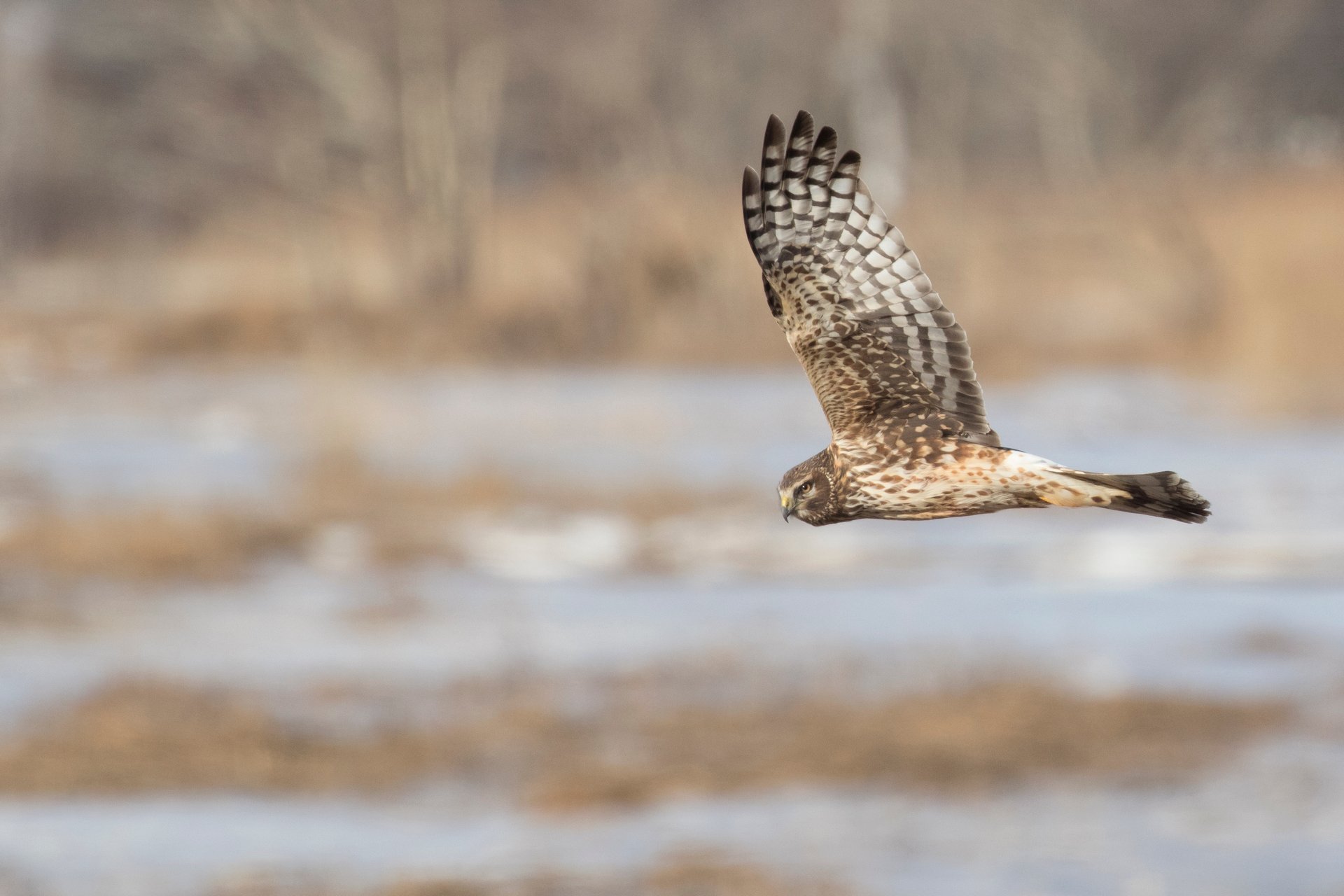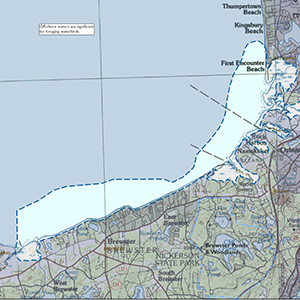Important Bird Area: Brewster - Eastham Flats
Site Summary
Nominated By
Blair Nikula
Size
4,200 acres
Towns and Counties
Brewster, Eastham; Barnstable
Ownership
towns of Brewster, Orleans, and Eastham, private
Major Habitats
20% salt marsh, 10% coastal beach, 70% marine/tidal
Land Use
recreation or tourism, fisheries/aquaculture, undeveloped
Minor Threats
disturbance to birds or habitat, recreational development/overuse
Site Description
The Brewster - Eastham Flats extend from approximately Quivett Creek on the Brewster/Dennis town line northeastward to First Encounter Beach in Eastham. The area includes approximately 9.7 linear miles of shoreline and over 3,500 acres of tidal flats. Also included are almost 600 acres of salt marsh, primarily in the First Encounter, Boat Meadow Creek, and Namskaket areas. Small areas of coastal dune are also included.
Current Conservation Status
Recreational use by bathers, boaters, and, especially in recent years, jet-skiers creates disturbance during the summer months, though it is not clear to what extent this disturbance is impacting birds. The period of greatest bird use appears to be in the fall, when human use is minimal. Residential development in upland areas bordering the proposed IBA has been extensive, but what if any impact this is having on the flats or salt marsh is unknown.
Ornithological Significance
This site annually hosts large concentrations of Brant, with numbers routinely exceeding 2,000 birds and occasionally exceeding 3,000 (CBC data). Large numbers of shorebirds, particularly Black-bellied Plovers, Sanderlings, and Dunlins, use the area during fall migration and early winter. Although the size of the area makes censusing difficult, and no systematic shorebird counts have been conducted here, the number of shorebirds using the area easily numbers into the thousands.
Other Flora or Fauna of Significance
The flats have historically been the site of standings of marine mammals, primarily White-sided Dolphins Northern Pilot Whales, and cold-stunned sea turtles (Ridley's, Green, Loggerhead). Commercially significant populations of shellfish and finfish are also present.
Data Sources
Christmas Bird Counts, Bird Observer records
Blair Nikula, personal observations




